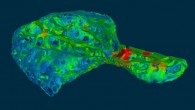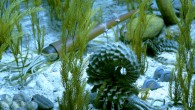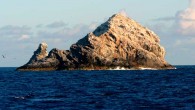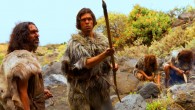A molecular motor developed by a team of researchers from Switzerland consists of just 16 atoms. The world’s smallest molecular motor consists of a single acetylene rotor anchored to a chiral atomic cluster provided by a palladium-gallium surface that acts as a stator. Image credit: Empa. “This brings us close to the ultimate size limit for molecular motors,” said co-author Dr. Oliver Gröning, head of the Functional Surfaces Research Group...




















